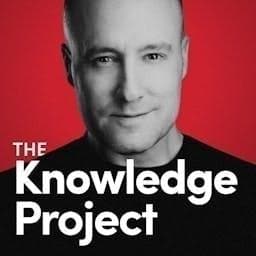What happens when you drop a senior project manager into a room full of attorneys, tribal leaders, political operators, and massive personalities?
In this Top Shelf Replay, Kate & Kim revisit one of the most beloved—and re-listened—episodes in PM Happy Hour history: "Stage Direction in the Boardroom" featuring master facilitator Sheila Morago.
If you've ever wondered how elite leaders steer complicated, high-stakes conversations without losing their cool (or losing six months of work with one careless comment), this episode is your new playbook.
Sheila shares the tools, tactics, and emotional intelligence behind managing senior stakeholders, building trust, engineering alignment, and yes…occasionally staging a fight to get everyone to "yes." Get ready—this episode is full of real-world policy drama, tribal gaming insight, negotiation theater, and powerful lessons for any PM trying to move from "task master" to strategic leader.
Great Quotes From the Episode
-
"Never ask a question you don't already know the answer to."
-
"These aren't meetings—they're Kabuki theater."
-
"Nothing brings people together like a common enemy."
-
"If you don't let them vent early, they will vent later—and at the worst possible moment."
-
"Policy takes years. Tech takes a week."
What You'll Learn (Key Outcomes) 1. How Senior Leaders Actually Negotiate
Sheila breaks down what it takes to orchestrate alignment among executives, attorneys, policymakers, and stakeholders—none of whom work for you, all of whom report to someone powerful.
2. The Secret Skill That Makes PMs Into Leaders
How listening (really listening) becomes your most strategic tool at the senior level.
3. Managing High-Stakes Meetings Without Losing Control
Why should one person guide the conversation? How to posit their positions to draw out quiet or hesitant stakeholders. How to keep the emotional temperature safe but not silent.
4. The Power of the 'Safe Zone'
Why must you create a space where stakeholders can speak unfiltered, off-record, and without fear of political consequences.
5. Relationship-Building: The Long Game
Happy hours, lunches, hallway conversations—how the "work between the work" makes the boardroom possible.
6. The Art of the Staged Fight
Why conflict must be visible. Why letting people "win" (feel like they won) is essential. Why is the real battle scripted before the meeting starts?
7. Using Common Ground—and Common Foes
When "we all want the same thing" works. When "the real enemy is over there" works even better.
8. How to Lock Down Decisions So They Don't Backslide
Why immediate execution is key. How implementation momentum prevents second-guessing.
9. Lessons Kate & Kim Learned 8 Years Later
Why parts of this episode hit harder after a decade of PM leadership. How letting emotions into the meeting leads to better outcomes. What PMs often overlook when they're new to senior-level facilitation.
If you want to level up from "planner of tasks" to leader of leaders, this replay is essential listening. Whether you're negotiating policy, driving enterprise transformation, or just trying to get two teams to agree on anything—Sheila's battle-tested tools will help you steer the room, keep your cool, and bring people with you.
ABOUT OUR GUEST, SHEILA MORAGO
Sheila Morago is the Executive Director of the Oklahoma Indian Gaming Association. OIGA has 30 member tribes and numerous associate members. Oklahoma now ranks third in the United States in gaming revenue, with 118 casinos ranging from small fuel stops to full resort casinos.
Prior to working for OIGA, Ms. Morago was Executive Director for the Arizona Indian Gaming Association. She has also served as the Director of Public Relations for the National Indian Gaming Association, based in Washington, D.C.
Ms. Morago began her career in tribal gaming in 1994 when she was appointed Director of Marketing for the Gila River Casinos, where she built the marketing department for this multi-million dollar enterprise and opened two successful tribal casinos. Before joining AIGA, Ms. Morago was Vice President of National Relations for Initial Impressions based in Tempe, Arizona, where she was responsible for all political and public relations for tribal and non-tribal clients.
In January 2006, she was named one of 25 people to watch by Global Gaming Business. She was named one of the "Great Women of Gaming" by Casino Enterprise Management in 2004, and inducted into the Indian Gaming Hall of Fame, presented by Indian Gaming Magazine, in 2012.
And if you're tired of carrying the emotional labor for your entire project team, come get some backup and community. Join us at: https://pmhappyhour.com/membership © Project Management Happy Hour




































